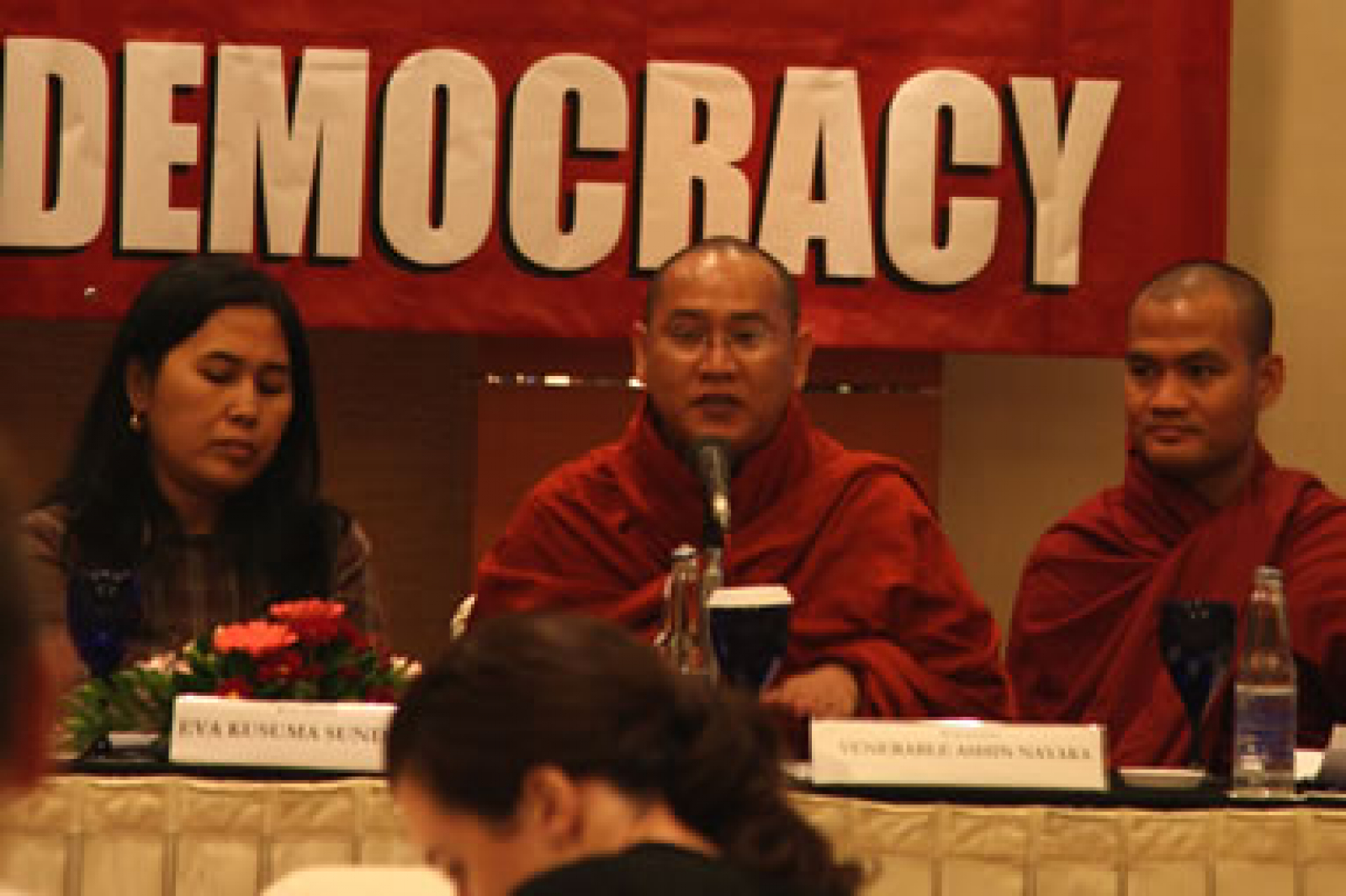
SHARE
A year after Burma’s Saffron Revolution, the International Burmese Monks Organization (IBMO), a group of monks living in exile, is working to spread the word about conditions in their country.
Most participants in their “Global Monk Tour” left Burma for their own safety after speaking out against the country’s military government. The regime responded brutally to the Saffron Revolution, a peaceful protest led by Buddhist monks against rising fuel prices and government repression that brought hundreds of thousands of people to the streets. Nearly a thousand new political prisoners were arrested and reportedly faced torture and inhumane treatment, and government constraints on dissent remain severe.
The Institute worked with the IBMO to send a delegation of monks to Indonesia to encourage more open discussion in the region of the Burma situation. The May visit, co-organized by the Association of South East Asian Nations (ASEAN) Inter-parliamentary Myanmar Caucus and a number of Indonesian non-governmental organizations, came in the wake of Cyclone Nargis and the Burmese junta’s delay in allowing foreign aid into the country. The storm and its aftermath underscored the continued urgency of Burma’s economic, social, and political situation.
Each of the visiting monks had a unique story. For example, U Ashin Nayaka described his part in a 1988 peaceful uprising that ended with 3,000 people killed by the junta. Nayaka said he joined the tour “because as a monk trying to help the people of Burma, he saw the poverty and repression of people around him and could not remain silent anymore,” said Stephanie Lynn, NDI’s resident senior program director for Malaysia and Burma.
Another speaker, U Awbata, said he felt a responsibility to stand up for his community. Since Buddhist monks are prohibited from cooking for themselves, Awbata found himself requesting alms from families already struggling to buy their own food. Awbata joined the 2007 protests and eventually became a leader in the Saffron Revolution.
The IBMO chose Indonesia as a destination for the Global Monk Tour because it is a member of the United Nations Security Council and because of its leadership role on Burmese affairs within ASEAN.
The speaker of the Indonesian parliament, Agung Laksono, and the country’s former president, Abdulrahman Wahid, met with the monks and expressed support for their efforts. Representatives of the Burmese government in exile — elected in 1990 along with opposition leader Aung San Suu Kyi but prevented from taking power by the junta — visited an August session of parliament in Jakarta, the first time the government in exile had attended a session of a parliament within ASEAN.
NDI has also conducted other programs to assist Burmese activists. In June, Institute staff traveled to the Thailand-Burma border region to consult on advocacy, organization, communications, and planning with Burmese groups and activists living in exile.
On the anniversary of the revolution, Sept. 25, the IBMO and its supporters participated in an array of events. In Indonesia, NDI screened a short film about the monks’ visit to the country, and in New York the IBMO took part in a peace walk, while monks who participated in the revolution spoke to audiences about their experiences.
“The situation in Burma is grave and requires more attention,” Lynn said. “The strength and bravery of both those in Burma and those who have to leave is inspiring for democrats around the world. They deserve our support.”
Pictured above: Participants in the Global Monk Tour speak at a panel discussion in Jakarta.
—
Published Oct. 23, 2008


